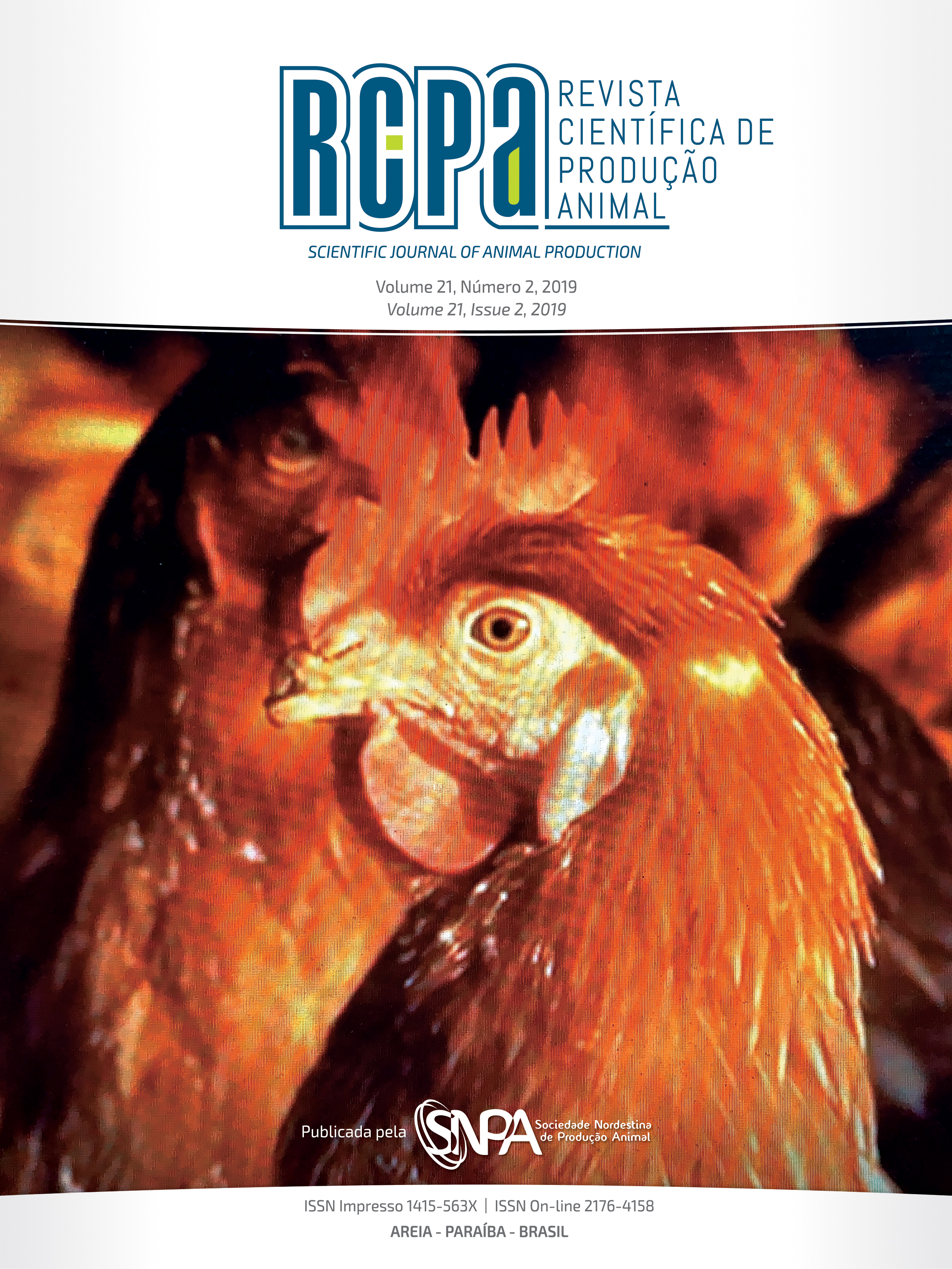Heat production and performance of broilers can be changed by inclusion of glycerin in their diet
Resumo
Glycerin has low heat increment and earlier studies on broilers evaluated
its effects during the entire rearing period or in two phases at most. This
study aimed to evaluate the effects of crude glycerin in diets of poultry on the
performance and heat production of broiler chickens. For this, four evaluation
phases (1-7, 8-21, 22-34, and 35-42 days of age) were established and 540
Cobb male broilers were distributed in a completely randomized design in
six groups, each one with four replicates. The broilers were fed with diets
containing 0 (control), 2.5, 5.0, 7.5, 10.0 and 12.5% glycerin. Feed consumption,
weight gain, feed conversion ratio, and heat production were evaluated in
each phase. The inclusion of up to 12.5% glycerin had a linear effect (P <
0.05), resulting in an improvement in feed conversion ratio, with no change
in weight gain and feed consumption in the phase 1-7 days. There was no
effect of the glycerin levels on the performance characteristics in the phases
8-21, 22-34, and 35-42 days of age. Some effect on heat production could be
observed only in the phase 1-7 days of age (P<0.05), which was linear and
decreasing. Glycerin can be added to the diets in up to 12.5% in all phases, not
causing negative effects on the performance of broiler chickens. The addition
of 12.5% glycerin reduced heat production in the phase 1-7 days of age.
Downloads
Downloads
Publicado
Como Citar
Edição
Seção
Licença
Autores que publicam nesta revista concordam com os seguintes termos:- Autores mantém os direitos autorais e concedem à revista o direito de primeira publicação, com o trabalho simultaneamente licenciado sob a Licença Creative Commons Attribution que permite o compartilhamento do trabalho com reconhecimento da autoria e publicação inicial nesta revista.
- Autores têm autorização para assumir contratos adicionais separadamente, para distribuição não-exclusiva da versão do trabalho publicada nesta revista (ex.: publicar em repositório institucional ou como capítulo de livro), com reconhecimento de autoria e publicação inicial nesta revista.
- Autores têm permissão e são estimulados a publicar e distribuir seu trabalho online (ex.: em repositórios institucionais ou na sua página pessoal) a qualquer ponto antes ou durante o processo editorial, já que isso pode gerar alterações produtivas, bem como aumentar o impacto e a citação do trabalho publicado (Veja O Efeito do Acesso Livre).





